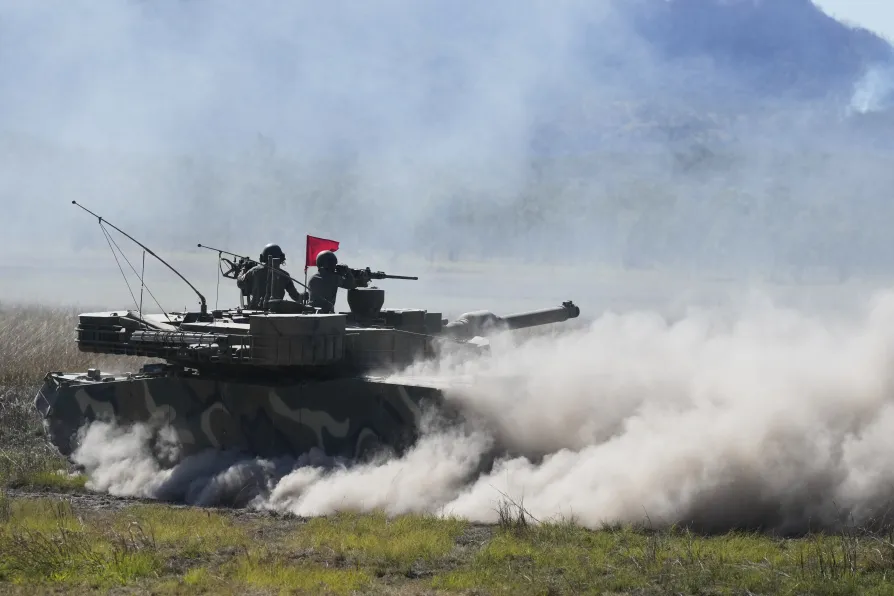
 South Korean soldiers fire from a K1 tank during Exercise Talisman Sabre 2025, Australia's largest-ever war fighting drills at Shoalwater Bay Training Area, near Rockhampton, Australia, July 14, 2025
South Korean soldiers fire from a K1 tank during Exercise Talisman Sabre 2025, Australia's largest-ever war fighting drills at Shoalwater Bay Training Area, near Rockhampton, Australia, July 14, 2025
BRITISH troops are taking part in the largest-ever Australian-led military drills, codenamed Exercise Talisman Sabre, which involve more than 35,000 troops from 19 nations.
Taking part in the three weeks of war games, which began on Sunday, are forces from 19 nations: Canada, Fiji, France, Germany, India, Indonesia, Japan, the Netherlands, New Zealand, Norway, Papua New Guinea, the Philippines, South Korea, Singapore, Thailand and Tonga, as well as Britain and Australia, Australia’s Defence Department said.
Malaysia and Vietnam are also attending as observers. Although not in attendance, the long military shadow of the United States hangs over the war games.
The exercise will also take part in Papua New Guinea, Australia’s nearest neighbour. It is the first time Talisman Sabre activities have been held outside Australia.
The war games started the day after Australian Prime Minister Anthony Albanese began a six-day visit to China, where his fourth face-to-face meeting with Chinese President Xi Jinping is expected to take place in Beijing tomorrow.
Mr Albanese said that Talisman Sabre, which raises already high tensions with China, would not be an issue raised with Mr Xi.
But the prime minister told reporters in Shanghai today that he would “continue to assert Australia’s national interest.”

From 35,000 troops in Talisman Sabre war games to HMS Spey provocations in the Taiwan Strait, Labour continues Tory militarisation — all while claiming to uphold ‘one China’ diplomatic agreements from 1972, reports KENNY COYLE













